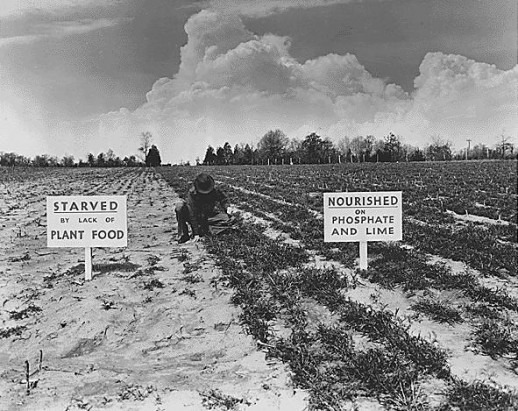Fertilizers – Tips on Ventura County & Conejo Valley Soil Care
When you go to the nursery to pick up fertilizer, whether it be for your lawn, your vegetable garden, or your roses, you have so many options. Most of your options involve flashy and well advertised bags with well known brand names, but it’s not the name that makes the plant food any good. Plants need certain ingredients to be successful. Think of how our food has nutrition facts on the back of the box or wrapper to help us make better decisions on what we should eat based on our daily nutrition needs, so too does plant food have ingredients that you need to look for in order to keep your plant healthy. When you buy miracle grown, it’s no miracle that your plant does better. It’s not about the brand name at all, it’s about these three basic ingredients:
- N – Nitrogen helps make plants greener, and helps them grow faster. Nitrogen can be depleted over time by plants, or by being washed away.
- P – Phosphorous is good for root growth, disease resistance, seed and fruit growth, and for blooming and flowering.
- K – Potassium or Potash can help with increasing root growth, with drought resistance, and with disease resistance.
These are the ingredients and their uses. Their numbers added together don’t add up to 100% like some might think, and larger numbers aren’t necessarily a good thing. Many people add way too much fertilizer in their yard to begin with. Fast growth is NOT a good thing. Adding only N or too much of it will make the plant grow quickly, but the plant’s disease defense will not keep up with its fast growth and it will be susceptible to disease. Organic fertilizers are excellent for long term plant health and growth because they focus on long term soil health which is key to a plants success. Chemical fertilizers are usually short term solutions, and can be harmful to the health of plants as well as people and animals if used improperly.
We’ll be talking about aerating and composting in our upcoming blog. These two things go hand in hand with fertilizing to help release N-P-K into the soil, and they make it possible for limited to no fertilizer needed by helping to keep soil bacterial processes healthy. N-P-K may help make for a healthy plant, but O-W-L (Oxygen, Water, and Life (such as bacterial processes)) is important for healthy soil. Without healthy soil, we can’t grow anything.
Here’s a quick link to check out. It gives basic directions on fertilizing a vegetable garden:
http://home.howstuffworks.com/vegetable-garden-soil5.htm



